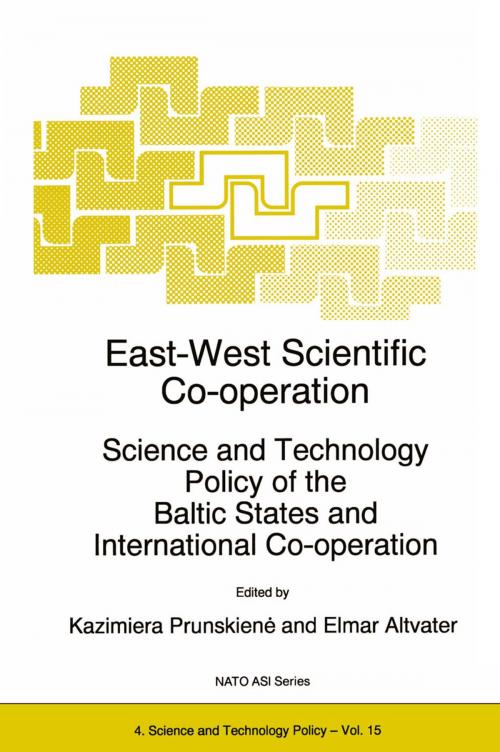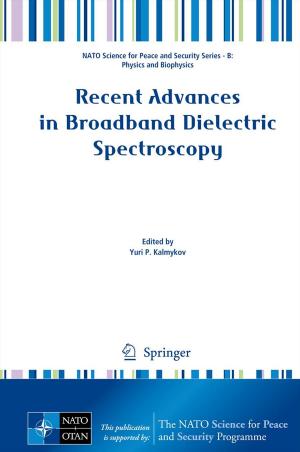East-West Scientific Co-operation
Science and Technology Policy of the Baltic States and International Co-operation
Nonfiction, Science & Nature, Science, Other Sciences, Study & Teaching, Social & Cultural Studies, Social Science, Sociology| Author: | ISBN: | 9789401156127 | |
| Publisher: | Springer Netherlands | Publication: | November 11, 2013 |
| Imprint: | Springer | Language: | English |
| Author: | |
| ISBN: | 9789401156127 |
| Publisher: | Springer Netherlands |
| Publication: | November 11, 2013 |
| Imprint: | Springer |
| Language: | English |
All former Soviet Union countries experience their past as a heavy burden. It led to the centralisation of scientific personnel, the separation of research from teaching at universities, and a concentration of certain branches of technology in different parts of the Union. This has given rise to a one-sided technology and science potential which frequently cannot be sufficiently supported due to a lack of adequate finance.
Cooperation between the Baltic States themselves is often hampered by an exaggerated sense of national identity, and international cooperation can be made difficult by linguistic problems. A critical issue is finance. The Baltic States themselves are experiencing budgetary constraints, and the West is cutting back on funding.
The analytical issues dealt with here include specific questions, such as in the sectors of energy policy, electrical equipment and electronics, and environmental considerations. The transfer of technology is also discussed, as is security: there is the possibility that science and scientific results can be obtained from the former Soviet Union at low cost by the criminal community.
All former Soviet Union countries experience their past as a heavy burden. It led to the centralisation of scientific personnel, the separation of research from teaching at universities, and a concentration of certain branches of technology in different parts of the Union. This has given rise to a one-sided technology and science potential which frequently cannot be sufficiently supported due to a lack of adequate finance.
Cooperation between the Baltic States themselves is often hampered by an exaggerated sense of national identity, and international cooperation can be made difficult by linguistic problems. A critical issue is finance. The Baltic States themselves are experiencing budgetary constraints, and the West is cutting back on funding.
The analytical issues dealt with here include specific questions, such as in the sectors of energy policy, electrical equipment and electronics, and environmental considerations. The transfer of technology is also discussed, as is security: there is the possibility that science and scientific results can be obtained from the former Soviet Union at low cost by the criminal community.















